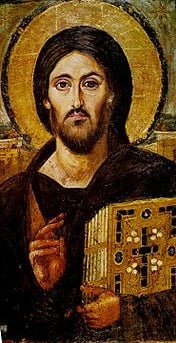Chris Hall, in Worshiping With the Church Fathers
, examines another topic — withdrawal into the desert — and it leads me to ask a question, one that I hope you give some thought and then weigh in:
Why do you think most Protestants, and especially low church evangelicals, have no monastic tradition, no ascetical tradition, and no emphasis on retreats into the desert? And for those who do find such traditions, why do they have to dip into the fathers and the Roman Catholic traditions to find it? Is there something wrong with this tradition or is there something wrong with the evangelical tradition?
Well, St Antony and the desert tradition are synonymous. Once, after hearing a sermon on “be perfect and sell your possessions,” St Antony — and later St Francis — took these words of Jesus to heart and sold all. St Antony into the desert; St Francis into a life of denial and poverty and humility.
And why do both Antony and Francis exercise such an iconic power or moving symbol to this day?
The desert tradition has a number of significant words: training, discipline, humility, emulation, submission, spiritual warfare … yes, and many today chafe at the number of “spiritual encounters” Antony had (I know I do).
And then the extremes: going all night without sleep as a discipline, eating but once a day or less, eating bread and salt and water, sleeping on a coarse mat or even on the ground. This strengthened his soul as it suppressed the body.
Antony was known for not competing spiritually; he took one day at a time and received what it had. He was in the desert for 35 years and the Eastern fathers saw him in terms of theosis: he was transformed by the time in the desert. He was a powerful minister of the gospel after this time in the desert.
Hall closes the chp with a discussion of theosis. Union with Christ transforms into Eikons of God, those bearing God’s image. Christ became what we are in order to make us what he is. But Athanasius, who wrote the book on St Antony, does not blur ontological distinction in his theory of theosis. The incarnation, and therefore also eucharist, are Christ’s joining our nature so we can be united to him. Meditation on the redemptive work of Christ fosters theosis.


